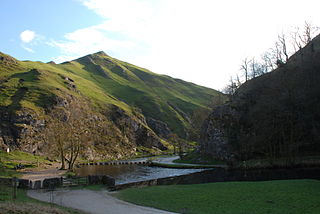Related Research Articles

Henry Singleton (1682–1759) was an Irish politician and judge, who is remembered now mainly for his friendship with Jonathan Swift, and for his notable acts of charity during the Great Irish Famine of 1740-1, in which between 300,000 and 500,000 people died. Singleton House, his impressive townhouse in Drogheda, no longer exists.
Sir Thomas Luttrell was a wealthy Anglo-Irish landowner of the sixteenth-century Irish Pale. He was also a distinguished lawyer and judge who held the offices of King's Serjeant, Solicitor General for Ireland and Chief Justice of the Irish Common Pleas.

The Court of Common Pleas was one of the principal courts of common law in Ireland. It was a mirror image of the equivalent court in England. Common Pleas was one of the four courts of justice which gave the Four Courts in Dublin, which is still in use as a courthouse, its name.
Christopher Bernevall, or Barnewall (1370–1446) was an Irish politician and judge of the fifteenth century, who held the offices of Vice-Treasurer of Ireland and Lord Chief Justice of Ireland. He was deeply involved in the political controversies of his time, and was a leading opponent of the powerful Anglo-Irish magnate James Butler, 4th Earl of Ormond. His elder son Nicholas also held office as Lord Chief Justice, and his younger son Robert was created the first Baron Trimleston.
John Keppock was an Irish judge of the late fourteenth century, who held the offices of Lord Chief Justice of Ireland, Chief Baron of the Irish Exchequer and Deputy Lord Chancellor of Ireland. He became a politician of some importance.
James Uriell was an Irish landowner and judge who held office very briefly as Chief Baron of the Irish Exchequer.
Clement Fitzleones, FitzLyons, or Leones was an Irish lawyer and judge. He held the offices of Serjeant-at-law (Ireland) and Attorney-General for Ireland and was briefly Deputy to the Chief Baron of the Irish Exchequer.
Sir Thomas Kent was an Irish judge who held office as Chief Baron of the Irish Exchequer.
John Estrete, or Strete was an Irish judge, author, law lecturer and statesman of the late fifteenth century. He held the offices of King's Serjeant, Deputy Chief Baron of the Irish Exchequer, and Master of the Coinage of Ireland. He was a member of the Privy Council of Ireland. He wrote at least one legal textbook, Natura Brevium.
John Bermyngham or Bermingham was an Irish barrister and judge. He was one of the first Crown Law officers to be referred to as the King's Serjeant. He was later appointed Lord Chief Justice of Ireland, but did not take up the office.
John Tirel, or Tyrell was a prominent judge and statesman in fourteenth-century Ireland who held office as Serjeant-at-law and Chief Justice of the Irish Common Pleas.
William le Petit, Petyt, or Lepetit was an Irish judge who was very briefly Lord Chief Justice of Ireland. He is chiefly notable for having been pardoned for homicide.

Thomas Dowdall, also spelt Dowdale, Douedall, or Dowedall, was an Irish barrister and judge who held the office of Master of the Rolls in Ireland.
Thomas Archbold, or Thomas Galmole was a goldsmith and silver worker, who also qualified as a lawyer, and rose to become a senior Crown official and judge in Ireland in the late fifteenth and early sixteenth centuries. He was Master of the Mint in Ireland for many years.
Edward Somerton, or Somertoune was an Irish barrister and judge who held the offices of Serjeant-at-law (Ireland) and judge of the Court of King's Bench (Ireland) and the Court of Common Pleas (Ireland). He was born in Ireland, possibly in Waterford, although he lived much of his life in Dublin. By 1426 he was a clerk in the Court of Chancery (Ireland), and was paid 26 shillings for his labours in preparing writs and enrolment of indentures,. In 1427 he is recorded in London studying law at Lincoln's Inn. He returned to Ireland and was again in the Crown service by 1435, when he was ordered to convey lands at Beaulieu, County Louth to Robert Chambre, one of the Barons of the Court of Exchequer (Ireland). He was appointed King's Serjeant for life in 1437; he also acted as counsel for the city of Waterford, a position subsequently held by another future judge, John Gough.
Richard Jebb (1766–1834) was an Anglo-Irish judge of the nineteenth century. He was a member of a gifted family of English origin, which produced a celebrated doctor, three distinguished clerics, and a noted classical scholar.
Thomas Snetterby was an Irish barrister, King's Serjeant and Crown official of the fifteenth century. He was remembered long after his death for giving his name to Snetterby's orchard near Kevin Street, Dublin.
Robert Fitzrery was an Irish Law Officer, landowner and judge of the fifteenth century. He was a gifted lawyer, and the evidence also suggests that he was a shrewd and acquisitive man of business.
William Johnson (1760-1845) was an Irish politician, law officer and judge of the early nineteenth century. He sat in the Irish House of Commons, served as Serjeant-at-law (Ireland) and was a justice of the Court of Common Pleas (Ireland).
John Gough, or John Gogh was an Irish barrister, judge and Crown official of the fifteenth century.
References
- Ball, F. Elrington The Judges in Ireland 1221-1921 London John Murray 1926
- Hart, A.R. History of the King's Serjeant-at-law in Ireland Four Courts Press Dublin 2000